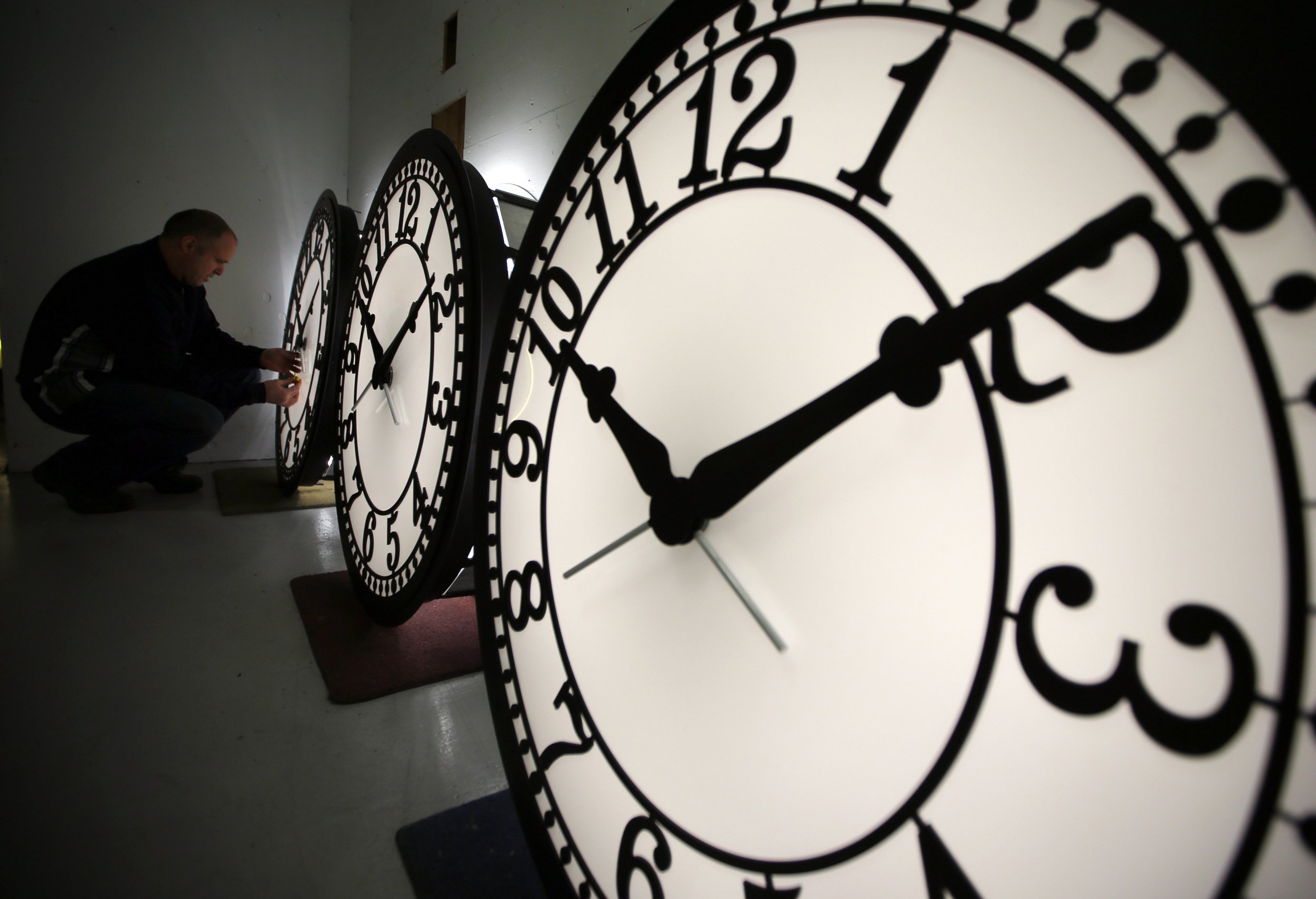
If you're due in court this Monday, hope the judge has had a cup of coffee before seeing you. If you're an employer, you should expect your employees' cyberloafing to increase. Do manual labor ? Try to take a power nap during the day to stave off the possibility of accidents.
Why? Studies show that Daylight Saving Time—which starts at 2 a.m. Sunday—disrupts your circadian rhythm, the biological clock that's synchronized with the rising and setting of the sun and regulates bodily processes such as sleep, metabolism and hormonal secretions.
"The circadian clock is our 24-hour rhythm that exists in our whole body," says Dr. Michael Halassa, an assistant professor of neuroscience at New York University. "If you travel to Europe and spend a couple weeks there, then your circadian clock is going to reset, that ultimately is linked to the regulation of sleep."
When we are sleep deprived, the connectivity between neural circuits is impaired. Sleep resets the weight of these neural circuits. Like a computer microprocessor, these circuits in the brain must be tuned well for us to make decisions. Otherwise you have cognitive inflexibility. "To be flexible you have to be able to process a lot of info," Halassa says. "People default to a lower processing capacity when they can't process a lot of information." Judges who hand out tougher sentences on Monday morning may not be mean; they may just be suffering from cognitive inflexibility caused by sleep deprivation.
Dr. Joseph Cooke, chairman of the Department of Medicine at NewYork-Presbyterian Hospital Queens, a community teaching hospital in Flushing, New York, warns that sleep deprivation contributes to "our disease processes." People at risk of heart attack and stroke should plan ahead for the missing hour of sleep. Sleep deprivation increases blood pressure and heart rate.
Since Americans are already generally sleep deprived, the daylight saving time lag can be especially detrimental to the public. Cooke suggests easing into the change in sleep pattern. "Try going to bed 15 to 20 minutes earlier each night a few nights before daylight saving," Cooke says. Turning off blue light from phones and laptops, following your normal pre-sleep ritual, and avoiding stimulants such as caffeine three to four hours before bedtime will ensure the quality of your sleep time. Exercising releases endorphins that put you in a better mood and relaxes your body, preparing it for sleep. A 15 to 20 minute "power nap" on Monday may also alleviate many of the symptoms associated with sleep deprivation—especially since March 13 is "National Napping Day."
Dr. Raj Dasgupta, an assistant professor at the University of Southern California and a fellow of the American Academy of Sleep Medicine, believes that daylight saving does more harm than good.
"When we talk about the benefits, people are thinking that any type of retail or activities involving sunlight would benefit from this," Dasgupta says. He believes that the detriments of sleep deprivation outweigh the health benefits of getting more sunlight.
"When you're sleep deprived you have poor attention and poor decision making—the opposite of what we thought," Dasgupta says. "When you say the words "daylight saving," it's a topic that will always have its critics and advocates."
Uncommon Knowledge
Newsweek is committed to challenging conventional wisdom and finding connections in the search for common ground.
Newsweek is committed to challenging conventional wisdom and finding connections in the search for common ground.
About the writer
To read how Newsweek uses AI as a newsroom tool, Click here.








